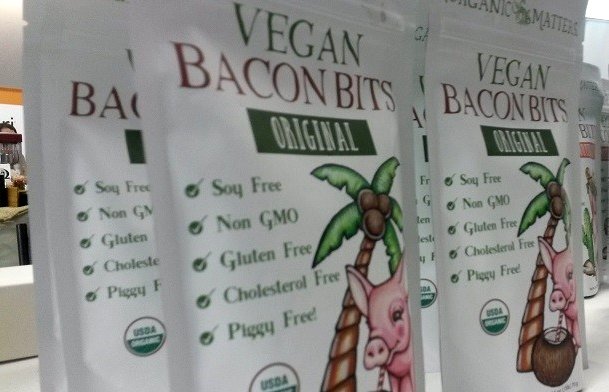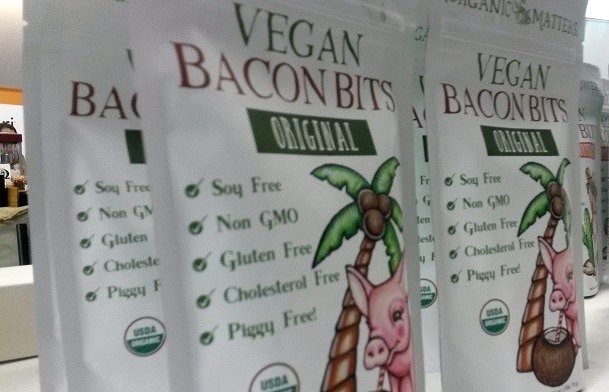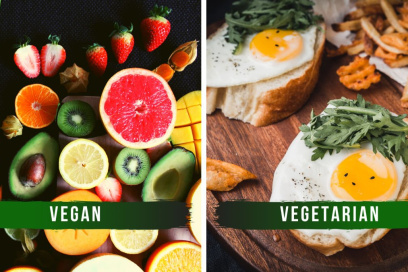Recently, veganism, an alternative lifestyle that eschews animal products for plant-based alternatives, has seen unprecedented popularity. At a time of increased awareness regarding ethical, environmental and health-related concerns as well as plant-based eating trends, consumers increasingly opting for plant-based diets; yet questions arise as to whether veganism remains relevant in contemporary society or has fallen out of fashion altogether.
We aim to disentangle these conflicting messages in this thought-provoking article by deciphering and making sense of various, often divergent trends. We'll delve deep into empirical data regarding veganism's growth rate, consumer trends and industry influence to fully grasp its growing momentum and enthusiasm behind its rise in popularity--such as availability of vegan alternatives or social media support to an increase in ethical living practices and environmental stewardship.
By the end of this insightful prose, you, as the reader, will gain a more informed and sophisticated perspective of why veganism continues to gain momentum among various groups of people. Additionally, this article should disprove any notions you might have had that veganism was becoming less fashionable, debunking any false notions regarding its popularity decline.
I. Veganism's Continued Growth
Veganism remains controversial and controversial; nevertheless its unstoppable growth in today's society is undeniable. Demand for plant-based products has experienced steady and sustained increases since 2016 which has allowed veganism to penetrate mainstream society - according to one survey by The Vegan Society alone, UK veganism experienced 360% growth since 2006 while Good Food Institute data show plant-based consumption skyrocketing 300% between 2004 and 2017 alone in America!
Veganism Goes Beyond Food
However, what makes veganism particularly striking is not its impact solely on dietary dispositions but its ripple-through into other sectors like fashion, beauty and tourism. Entrepreneurs have shown great enthusiasm in capitalizing on this booming market by offering vegan-friendly ethical options more easily accessible via supermarkets and retail stores; plant-based food sales alone skyrocketed 27% annually according to a joint report issued by Plant Based Foods Association and Good Food Institute in 2020 according to retail sales data alone!
Veganism's recent surge isn't limited to individual lifestyle choices; popular movements have emerged such as Meat-Free Mondays that encourage individuals to transition away from animal products gradually. Furthermore, its message has been spread widely via television documentaries and films featuring actors, chefs and influencers advocating a plant-based diet; its impact has even been felt on social media platforms like Instagram Twitter and TikTok with veganism's popularity steadily growing on these platforms.
Veganism Has Even Made Its Way To Fast Food Restaurants
Veganism's influence is felt even within the fast-food industry, where it has become an integral component of restaurant menus. A Good Food Institute report showed an astounding growth of 445% plant-based meat sales year over year; with several fast-food chains such as McDonald's, Burger King and KFC all offering vegan products to satisfy consumer demand.
Indeed, what we are witnessing today is not simply a passing fad but rather an unprecedented shift in dietary preferences that has occurred quickly and consistently over recent years. Adopting veganism has not been limited to any particular generation; however, millennials continue to lead this charge. Plant-based diets have reached unprecedented access with the rise of plant-based food industries providing consumers with plenty of choices.
Learn more at Food Revolution.II. Veganism's Continued Growth
Modern society has witnessed the explosive growth of plant-based diets and veganism with great interest. To understand what has driven its increase, many elements must be studied; such factors include ethical considerations, environmental impacts, health benefits and social media-driven aspects that have played a part in increasing veganism's popularity.
Ethical and Environmental Benefits
Veganism should be propagated for both ethical and environmental reasons, not least of all: animal agriculture is one of the leading contributors to greenhouse gas emissions, pollution, deforestation and global climate change; its global repercussions must be taken seriously and veganism offers one solution by limiting or altogether eliminating animal products to address environmental degradation globally.
>Furthermore, living a vegan lifestyle helps safeguard animals from suffering inflicted through brutal farming methods thereby advocating their rights while simultaneously decreasing suffering levels.Health Advantages
Veganism's popularity can also be attributed to its health advantages. Studies have demonstrated how plant-based foods rich in minerals, vitamins, and essential nutrients may lower heart disease risks as well as type 2 diabetes risks. Furthermore, their low saturated fats and cholesterol content helps promote cardiovascular health while also safeguarding against other health problems.
Vegan-Friendly Alternatives
Veganism's growth can also be attributed to an influx of vegan-friendly alternatives for animal products, with numerous popular brands introducing plant-based ice cream, meat substitutes and snacks/meals in retail stores and fast-food chains in recent years. Social media platforms have played a pivotal role in spreading awareness of veganism through online communities and influencers sharing recipes, cooking techniques and nutritional data about living the vegan lifestyle.
Criticisms
Despite its benefits, some critics argue that veganism may lead to nutritional deficiencies if not followed carefully or may be economically unfeasible for some people. However, these concerns can be addressed through education and affordable access to nutritious plant-based options.
III. Factors Contributing to Veganism's Popularity
Veganism's critics question both its sustainability and efficacy, while charging that it has become too glittering and profit-driven, with companies using veganism as an excuse for profit instead of advocating it as an ethical lifestyle choice.
Introduce flexitarianism:
An approach that reinforces the idea that vegan diets may not always be achievable. Flexitarians--those who typically adhere to plant-based diets but still partake of animal products at various levels--are considered by critics to represent the future of plant-based dining; offering people who may not yet be ready for full veganism with an alternative, more practical, sustainable, and sensible solution for living the plant-based life.
Veganism remains a fundamental step towards creating a more sustainable, ethical future. Veganism sets in motion an effective process of curbing environmental harm while protecting animal rights - not to mention, offering health advantages unattainable through an omnivorous diet.
However, those who dispute the efficacy of veganism fail to acknowledge how the rise of flexitarianism provides exactly the push people needed to reduce meat consumption - in turn benefiting the planet. By decreasing our animal product consumption in Western states specifically, this can significantly lessen ethical and environmental concerns associated with animal farming.
Veganism has seen tremendous growth since it first emerged as a social trend; with more and more people choosing more eco-friendly living solutions, veganism will only become mainstream over time.
Sure, veganism in its future might not be strictly vegan: some may still consume animal-derived products in small quantities; yet its fundamental precepts - its unwavering push towards creating a better world and its commitment to cultivating compassionate lifestyles with swift actions taken to safeguard both environmental and animal conservation- will remain undiminished.
Veganism's impact on the world cannot be underestimated. As evidenced by its increasing popularity and representation in mainstream culture, its rising popularity serves as evidence that veganism is not some passing trend; rather it continues to inspire lifestyle changes which will positively influence global issues. Veganism's popularity does not appear to be diminishing with each passing day - rather it appears to be increasing more strongly each time around.
Learn more on ScienceDirect.IV. Debunking the Myth of Losing Popularity
As this discussion comes to a close, it would be wrong to assume that veganism is losing steam in public opinion. Veganism's ascension as an increasingly popular lifestyle choice remains steady and undiminished. According to this thesis, many factors contribute to its rise, including ethical and environmental considerations, health benefits, availability of vegan alternatives, and social media influence.
Veganism's Viability
Veganism continues to thrive despite criticisms that challenge its viability and relevance, upholding its core values as essential components of creating a better world. Veganism should not be seen as just another fleeting trend but as an authentic and legitimate movement toward conscious and sustainable living that has immense potential to reduce environmental damage and animal cruelty.
The Reach of Veganism
Veganism's influence can be seen across various sectors, from fashion and beauty to food. Vegan products continue to expand in availability and influence, demonstrating its enormous global reach. Veganism should not be considered just another fleeting fad; rather, it represents an ongoing lifestyle choice that seeks a better world, more compassionate living conditions, and sustainable progress.
>"Veganism should not be seen as just another fleeting trend but as an authentic and legitimate movement toward conscious and sustainable living that has immense potential to reduce environmental damage and animal cruelty."
Conclusion
In conclusion, while veganism may face challenges, its popularity continues to rise. Its importance lies not just in its potential health benefits, but in its commitment to ethical consumption, environmental sustainability, and reducing animal cruelty.
- Ethical and Environmental Considerations
- Health Benefits
- Availability of Vegan Alternatives
- Social Media Influence
- Better world
- More compassionate living conditions
- Sustainable progress
Conclusion
Uncertain, yet undeniable is that plant-based living has experienced an unprecedented surge in popularity. From our earlier discussions, this lifestyle choice has not only maintained its trajectory but has made significant strides on an international scale; not only within food industries but also aesthetics, travel, fashion and other related realms such as aesthetics. Its success can be attributed to various factors including ethical considerations, environmental considerations, undeniable health advantages and an increasing variety of vegan substitutes available across social media platforms and shops alike.
While some might advocate for nontraditional solutions, veganism remains unequivocally effective at protecting both animal rights and environmental degradation simultaneously. Furthermore, veganism provides the means for reaching unparalleled zenith of health unachievable through conventional omnivorous diets.
Predicting what the future will hold for veganism is an inexact science, but one thing remains certain - its rising popularity as an ethical lifestyle choice will only continue.




